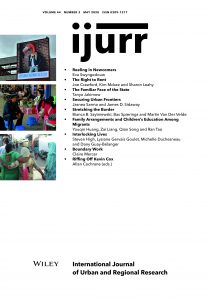As China is experiencing an urban revolution with massive rural‐to‐urban migration, millions of children are profoundly affected by their parents’ migration and their decisions about family arrangements. With the discriminatory hukou system and harsh living conditions in cities, the dilemma migrant parents face is whether they should take their children with them to the city or leave them behind. This decision determines the household, school and community environments that children live in, which, in turn, shape their well‐being. With a unique strategy of comparing ‘left‐behind children’ to ‘migrant children’ and a gendered perspective, this article examines how different family arrangements among migrants and consequent housing conditions and gender dynamics affect children’s educational well‐being. Our findings demonstrate the complex impact of family arrangements on children, which is conditioned by wage income and the gender of the absent parent and the child. We find that children from less favorable socio‐economic backgrounds benefit more from moving to cities. Children living with both parents and those living with their mother or grandparents tend to do better. While the effect of housing conditions is marginal, family arrangements have a gendered effect on children. Related policy recommendations are provided.
Details
Written by:
Youqin Huang, Zai Liang, Qian Song & Ran Tao
Digital Object Identifier (DOI)
10.1111/1468-2427.12649
About DOI

